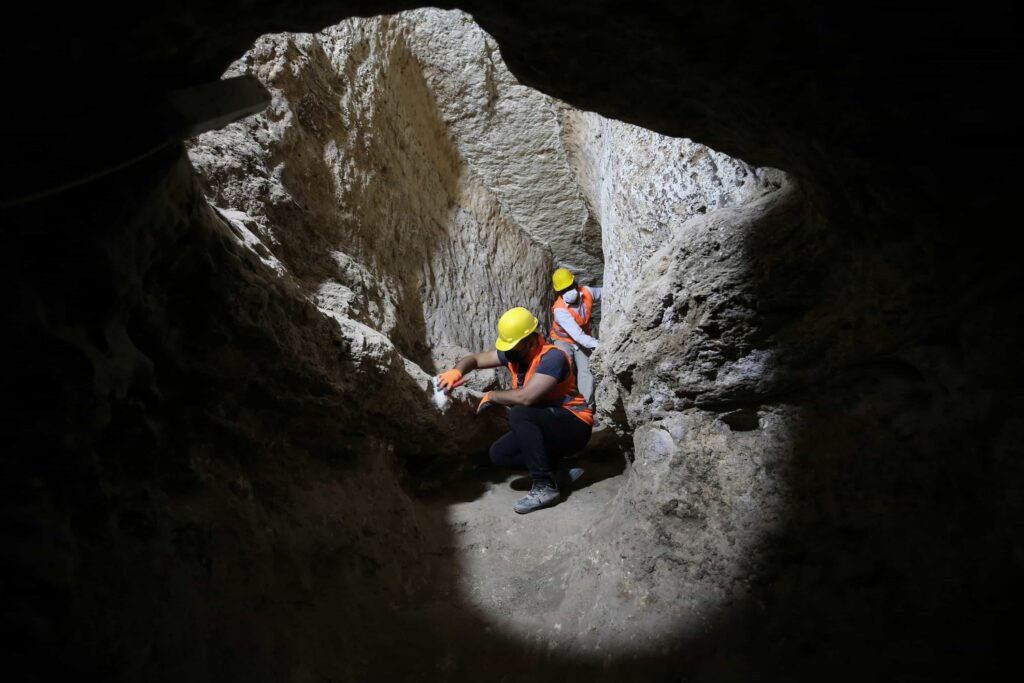What is the Difference Between the Underground and the Basement?
Underground and basement are two words that are frequently used interchangeably when referring to residential or business premises. But there are key distinctions between the two phrases that you should be aware of, particularly if you’re intending to develop, purchase, or make repairs to your home. When it comes to basements and underground, the fear of water seepage and damage is always there, especially during heavy rainy seasons or storms.
Expert basement waterproofing is one of the best waterproofing and foundation repair services providing high-quality products with 24/7 services at more affordable prices.
Now let’s understand the terms underground and basement types and their benefits in detail.

What is Underground?
An area that is below earth but isn’t intended for use by people is called an underground. Utilities including plumbing, HVAC, and electrical wiring are frequently installed in underground compartments. They can also be utilized to store things like gasoline tanks or other big pieces of equipment. Belowground areas frequently take the following forms:Crawl Space: Small, shallow subterranean areas known as “crawl spaces” are often utilized for utility access. They are frequently only a foot or two tall, which is not tall enough for human occupation. And to prevent water leakage, get professional crawl space waterproofing services.
Tunnels: Larger subterranean facilities known as tunnels are often used for utility or transit purposes. They are frequently used to convey goods like water or gas or to link structures.
Storm Shelters: Underground structures called storm shelters are created to shield people from dangerous weather, such as tornadoes or hurricanes.
The Advantages of an Underground
Increased storage space: An underground area can be used to store equipment or supplies that would otherwise take up precious above-ground space.
Tornado and hurricane safety: An underground storm shelter can give protection from extreme weather such as tornadoes and hurricanes.
Increased security: An underground chamber might provide a more secure place for specific equipment.
What is a Basement?
A basement is a room designed for habitation that is partially or entirely below ground level. Typically, basements are utilized for living purposes, such as a bedroom, home theater, or office. Below-grade structures that are typical include:
Full basements: These basements, which are frequently utilized as extra living space, are the same size as the main floor of the home.
Partially finished basements: These are basements that are smaller than the house’s main level and are frequently utilized as laundry rooms or storage areas.
Walk-out basements: These are basements with a window or door leading to the outdoors, allowing for more access and natural light.
The Advantages of Basement
Increased living area: A basement may give more living space for a household, which is beneficial for a growing family or for entertaining visitors.
Increased house value: A completed basement may enhance the total value of a property, which can be advantageous when selling.
Natural light: If a basement has windows or a walk-out door, natural light may enter the room, making it feel less like a basement and more like a typical living space.
Now it’s time to explore the key differences between the underground and the basement.
Key Differences between Underground and Basement
The following are some key differences between a basement and an underground space:
Use: The main distinction between a basement and an underground space is how they are used. A basement is often utilized as additional living space, such as a bedroom or home theater, and is created with human habitation in mind. On the other hand, a subterranean area is often utilized for utility or storage reasons and is not meant for human habitation.
Access: Accessibility is a significant additional distinction. While an underground room frequently needs a separate entrance or access point, a basement is generally accessible from within the main living area of a home.
Natural Light: A basement can feature windows or a walk-out door that let in natural light, making the area feel less like a cellar and more like a typical living space. A subterranean room, on the other hand, often lacks natural light and can be gloomy and difficult to traverse.
Moisture Problems: Because basements and subterranean areas are below ground level, they are prone to moisture problems. Basements, on the other hand, are often better able to handle moisture concerns since they are meant for human occupation and have stronger ventilation and drainage systems.
Size: A basement is usually larger than an underground area and can be utilized for several functions, but an underground space is usually smaller and is only used for utilities or storage.
Property Value: A completed basement may improve the total value of a property, which can be advantageous when selling. An underground area, on the other hand, is unlikely to add much value to a house.
Building: Basements are often built as part of a home’s original construction, whereas underground areas are sometimes added later on during restorations or improvements.
Purpose: Underground spaces are often utilized for storage or utility reasons, although basements are frequently used as living areas, such as bedrooms, home theaters, or offices.
Safety: A basement is meant for human occupation and must follow safety rules, such as having an escape window or door. An underground room can provide a safer place for some equipment or materials that may represent a safety threat above ground.
Conclusion
To summarize, while underground and basement areas are sometimes used interchangeably, they differ significantly in terms of construction, purpose, and access. Understanding these distinctions is critical when constructing or buying a home to ensure that the area is used safely and productively. They both require maintenance and repairs because water leaks may occur, causing harm to your property.
But if you are still unaware of the chances and damage then consult with Expert basement waterproofing, a reputable firm providing the best services with top-notch technology and high-quality products to its customers including the benefits of basement waterproofing coupons for more affordable pricing.

Lifetime Warranties
You can’t go wrong with a lifetime warranty on all services
FREE Inspections
FREE Estimates
Financing Available
Check out our competitive rates
Check out our competitive rates
Providing services throughout Northern Indiana and Southern Michigan
